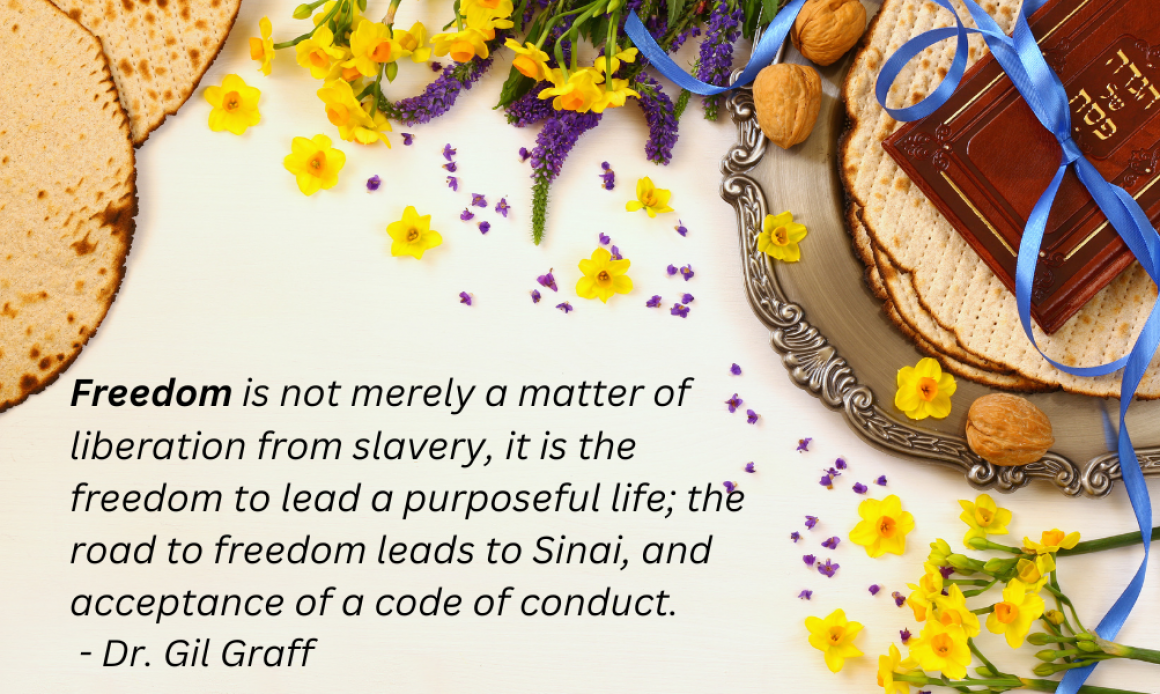
As Passover Approaches: Of History, Covenant and Memory
“History, as understood by the Torah,” writes Rabbi Jonathan Sacks, “is the story of how human beings, led only by the sound of a voice, a call, began the long journey, not yet complete, to a promised land and a messianic age where people construct a society that honors the image of God in others, sanctifying life, building families of love and trust, shaping communities by the principles of justice and compassion, and living at peace with their neighbors.” This narrative, Rabbi Sacks notes, “is saturated by the idea of covenant….” Though we typically celebrate the seder in family units, the seder experience expresses our relationship to a people with a shared past, present, and future.
Will Herberg observes that “To the Greeks, humankind had no destiny. The strivings and doings of men, their enterprises, conflicts and achievements, led nowhere.” In juxtaposition to this perspective, the Hebrew Bible sees history as a purposeful process. “History,” Jonathan Sacks writes, “is not an endless series of eternal recurrences or deja vus. Instead it is like a journey, with a starting point and a destination, or like a book with a beginning and middle and distantly glimpsed end.” Endowed with free-will, human beings are “co-authors in writing the script of history.”
The journey of the people Israel as a nation begins with the exodus from Egypt. When Moses first experiences God’s presence and hears himself summoned to serve as the agent of the Israelites’ freedom, the sign he is given that his mission is a sacred calling is that, when the Israelites leave Egypt, they will encounter God at that very mountain. Freedom is not merely a matter of liberation from slavery, it is the freedom to lead a purposeful life; the road to freedom leads to Sinai, and acceptance of a code of conduct.
Central to the exodus and the experience at Sinai is covenantal relationship. We are to be a “kingdom of priests,” fulfilling our part of the covenant through giving expression to the values and instructions of Torah. As Abraham was to “be a blessing,” so are the Jewish people, individually and collectively, to contribute to the well-being of humankind.
In his classic work Zakhor: Jewish History and Jewish Memory, Yosef Hayim Yerushalmi comments that “Only in Israel and nowhere else is the injunction to remember felt as a religious imperative to an entire people.” Jewish memory transmits the past to inform the present and nurture a vision of and commitment to building a better future. Not only are we to remember, but to translate memory to action; so, for example: “You shall not wrong a stranger or oppress him, for you were strangers in the land of Egypt” (Ex. 22:20). May our experience of Passover strengthen our connection, across multiple generations, with the continuing narrative of our people throughout place and time, inspiring action to advance the journey, not yet complete, toward realization of the vision of a world of justice, compassion, and peace. Chag sameach!
